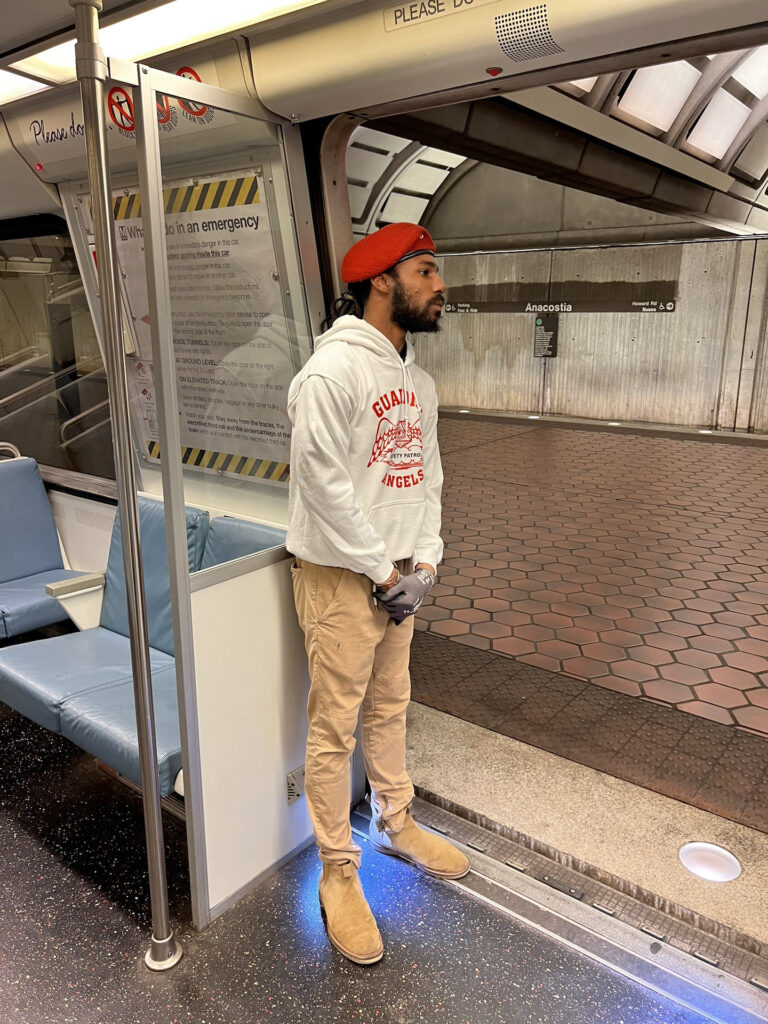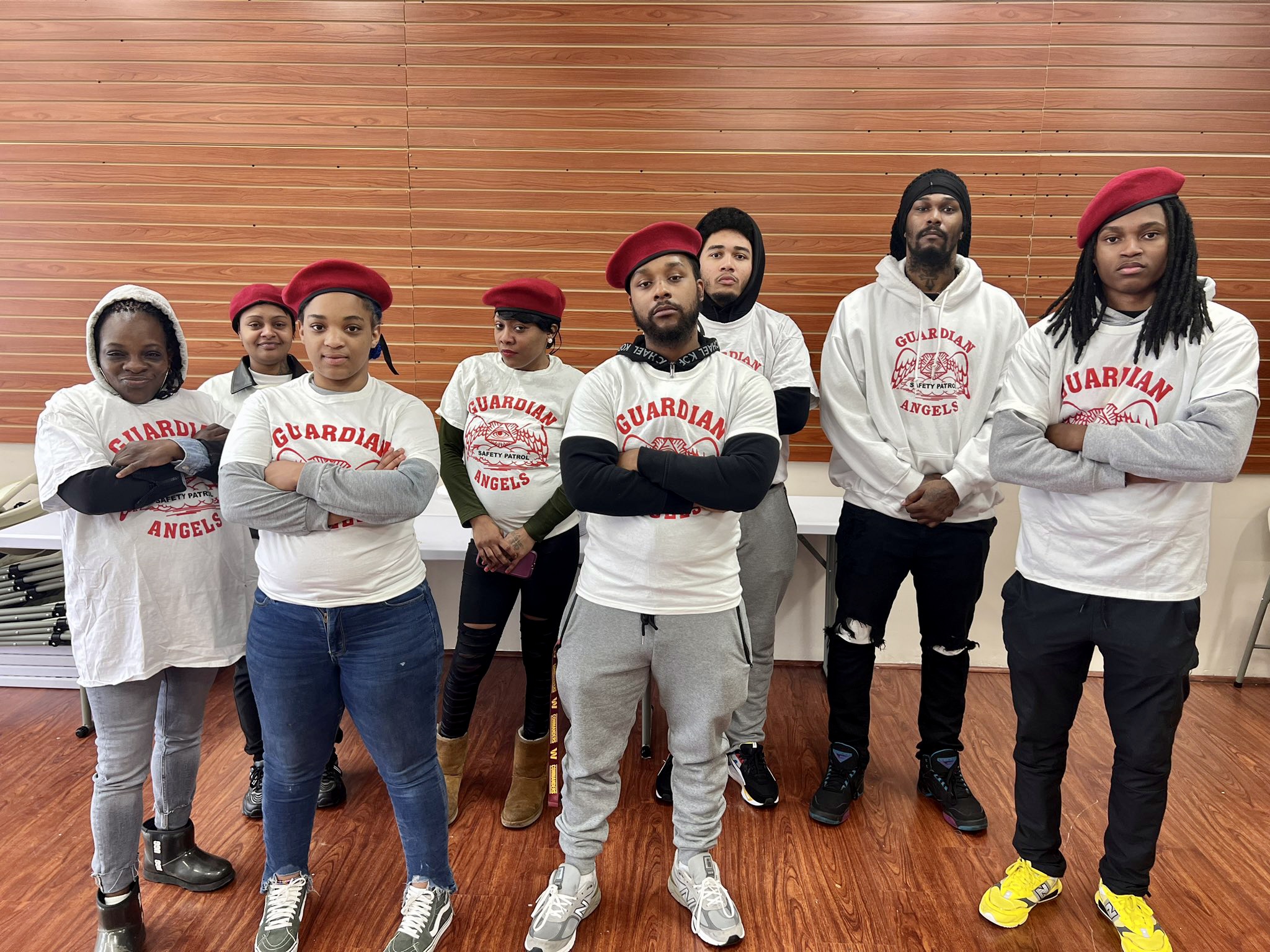WASHINGTON – The D.C. Guardian Angels, unarmed volunteer safety patrols dedicated to helping prevent crime in public spaces, are making their return to the Washington area’s Metro system after an increase in reported crimes.
The group is led by John Ayala, who started the Washington chapter in 1989 after previously being a member of the New York City group.
The Guardian Angels are a New York City-based nonprofit, started in 1979 by Curtis Sliwa. Since then, thousands of volunteers have joined the organization in cities across the country and around the world.
Ayala moved to Washington from New York City when he was 19 to bring the Guardian Angels to the nation’s capital. During the 1990s, both the New York and Washington groups were focused on the “crack cocaine era,” Ayala said.
“We were involved with the open-air drug market, trying to get a hold on it. So people in D.C. saw it and said, ‘you know what, we have that same issue here in D.C.,’” Ayala said in an interview with Capital News Service.
Ayala grew the group to about 100 members in the early 1990s, with the average age around 18. Today, the group is working on trying to keep the Metro safe while recruiting new members with a goal of returning to a core of about 100 people. There are currently 40 members signed up, averaging around 40 years old.
“Now it’s going to get to the point…where history is starting to repeat itself. It's not the gang violence, it’s not the drugs, but it’s the young people going out there hurting so many people in the community, and people are saying ‘enough is enough,’” Ayala said.
While people in their 40s and 50s may remember the Guardian Angels from the 1990s and early 2000s, younger people are less familiar with the group, Ayala said. So part of the Guardian Angels’ efforts is telling the younger generation about the group’s activities and mission, he said.
The Guardian Angels are currently concentrating their efforts on patrolling the Green Line, focusing specifically on the Anacostia and Congress Heights stations. Their goal is to be a deterrent, to observe and to report to Metro Transit Police Department, Ayala said.
Although the MTPD does not directly endorse the Guardian Angels, it “appreciates eyes and ears on the system,” Sherri Ly, Metro media relations manager, said in a statement to CNS.
Despite the MTDP’s efforts, Ayala said “there are not enough police officers out there.”
Washington Mayor Muriel Bowser announced a partnership between MTDP and the Metropolitan Police Department early last month, aiming to increase police presence at Metro stations.
While police are patrolling the stations, there are not enough officers to also patrol trains, Ayala said. After hearing about the increased police presence, the Guardian Angels are focusing on what is happening on the trains, while also monitoring the station platforms.
“We're tired of hearing everybody blaming the mayor, blaming the police chief, blaming the councilman,” Ayala said. “Those people are not the ones out...robbing people, they’re not telling people to rob people. They’re doing the best that they can, but they can't do it alone. It takes a village.”
The safety patrols are recognizable by their red berets and white shirts.

“Prevention is the best cure… so if wearing a recognizable pseudo-uniform can help deter people from getting froggy on public transport, that's the right way for a civilian to help, I think,” said Christopher Dailey, a Washington resident interested in potentially volunteering with the Guardian Angels.
Dailey rides the Metro about once a week. He heard of the Guardian Angels recently through social media and saw that they were looking for volunteers.
“I've seen increasing reports of violence and harassment on the Metro, particularly against women, and I'm a pretty strong and tall guy, so I'd like to think I'd step in and stop some acts like that, but it's easy to vigilante yourself thinking about it in confrontational terms like that,” Dailey said.
In February, there were a total of 195 arrests at various Metro facilities, including buses, Metro rail and parking lots, compared to 121 arrests in February a year ago, according to data released by the Metro Transit Police Department.
The MTPD reported 569 total crimes in February, an increase of 125 percent over the previous February. Sixty-five percent of the reported crimes in February happened on the Metro rail system.
Overall crime on Washington’s transit system decreased during 2020 and 2021, reflecting the height of the COVID pandemic. Over the past year, crime rates have started rising again.
A Guardian Angels patrol usually lasts two-and-a-half hours and volunteers are asked to put in eight hours a month.
The D.C. Guardian Angels' goal is to have 100 volunteers by spring. Those interested in volunteering can contact the Guardian Angels at 202-359-0601.


You must be logged in to post a comment.